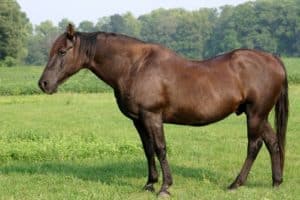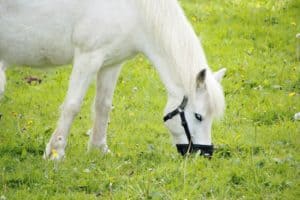
Senior Care at Horse Shows
Are there any special considerations I need to make when hauling, housing, and showing my healthy senior gelding?

Are there any special considerations I need to make when hauling, housing, and showing my healthy senior gelding?

Can horses with PPID be turned out on pasture and have grass? It depends, one researcher says. Here’s why.

An Icelandic Horse has tested negative for metabolic disease but is still gaining weight. Dr. Amanda Adams offers advice.

Dr. Amanda Adams explains the difference between equine metabolic syndrome and insulin resistance.

Weight gain is a common sign of EMS. But what other indicators should horse owners watch for?

Certain breeds seem more susceptible to EMS. Dr. Amanda Adams shares information about possible genetic links.

University of Kentucky researcher Amanda Adams, PhD, gives an overview of EMS and how it affects horses.

Equine metabolic syndrome can cause obesity, insulin resistance, and laminitis. Find out how to care for your EMS horse during our live event.

Dr. Amanda Adams shares information about how nutrition can impact the immune responses of geriatric horses.

In this UK Lecture Series video, Dr. Amanda Adams defines equine metabolic syndrome (EMS), explains how the EMS horse is more than “just a fat horse,” and presents new treatment and management approaches for this ever-expanding equine condition.
Stay on top of the most recent Horse Health news with
© 2022 Copyright Statement dolor sit amet, consetetur sadipscing User Terms, sed diam nonumy eirmod tempor invidunt ut labore et dolore magna aliquyam erat, sed diam voluptua. At vero eos et accusam et justo duo dolores et ea rebum. Stet clita kasd gubergren, no sea takimata sanctus est Lorem ipsum dolor sit amet.